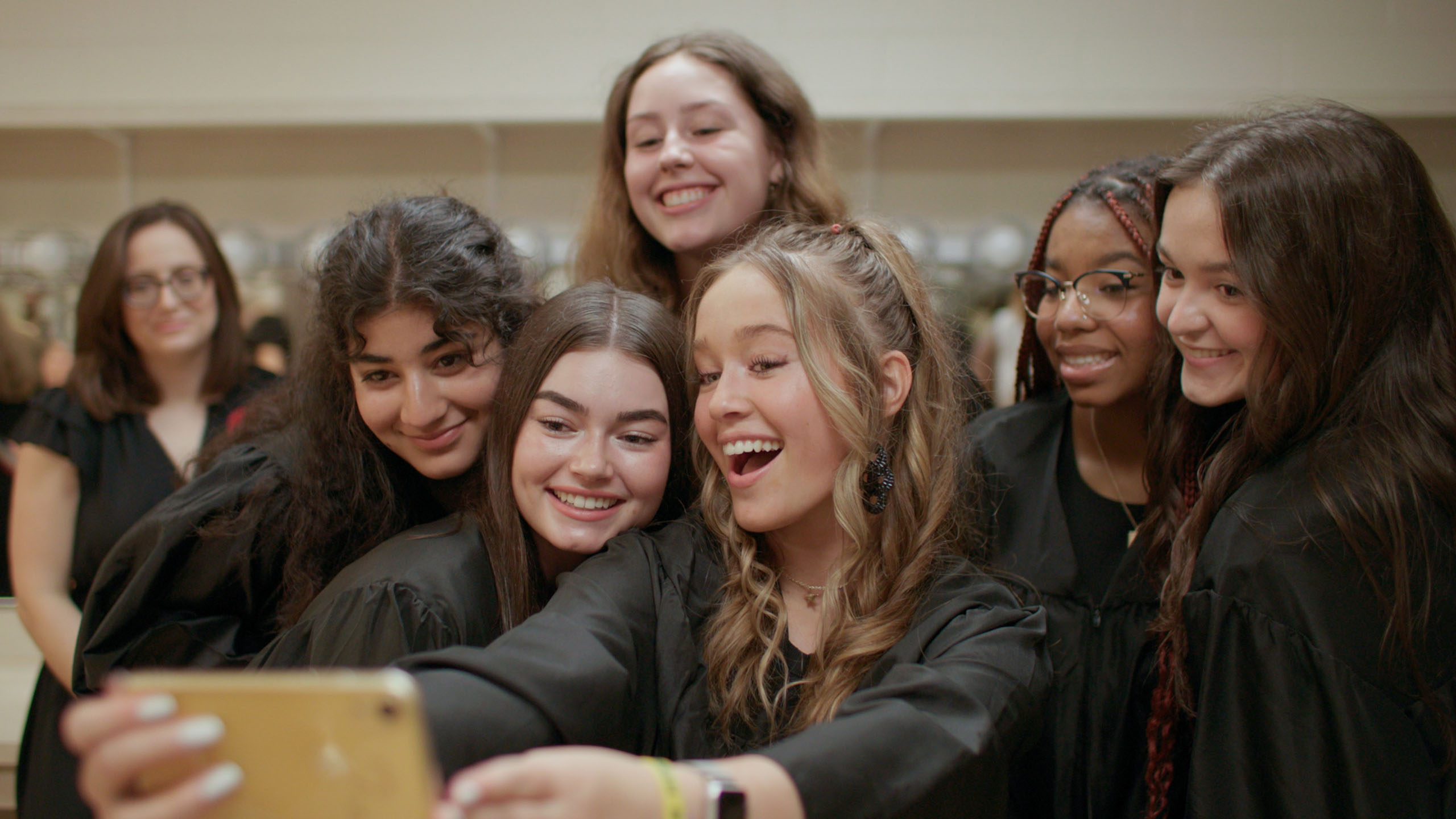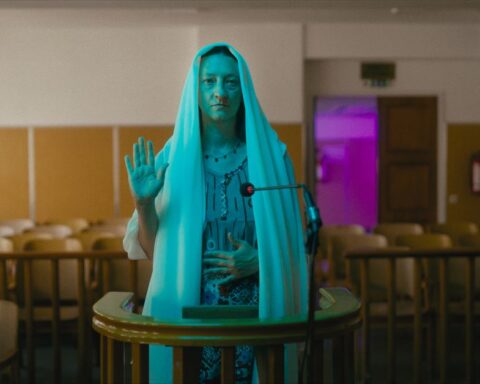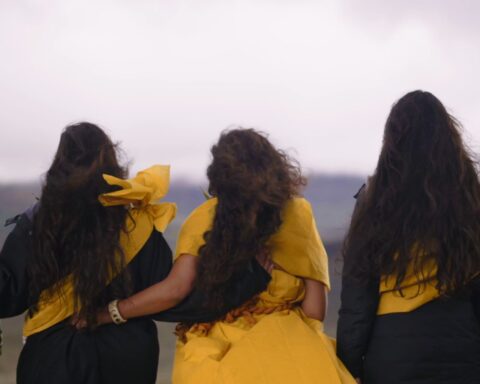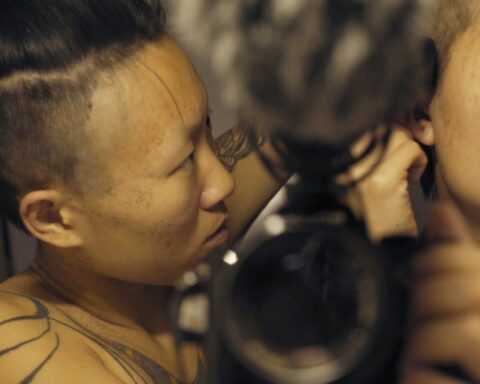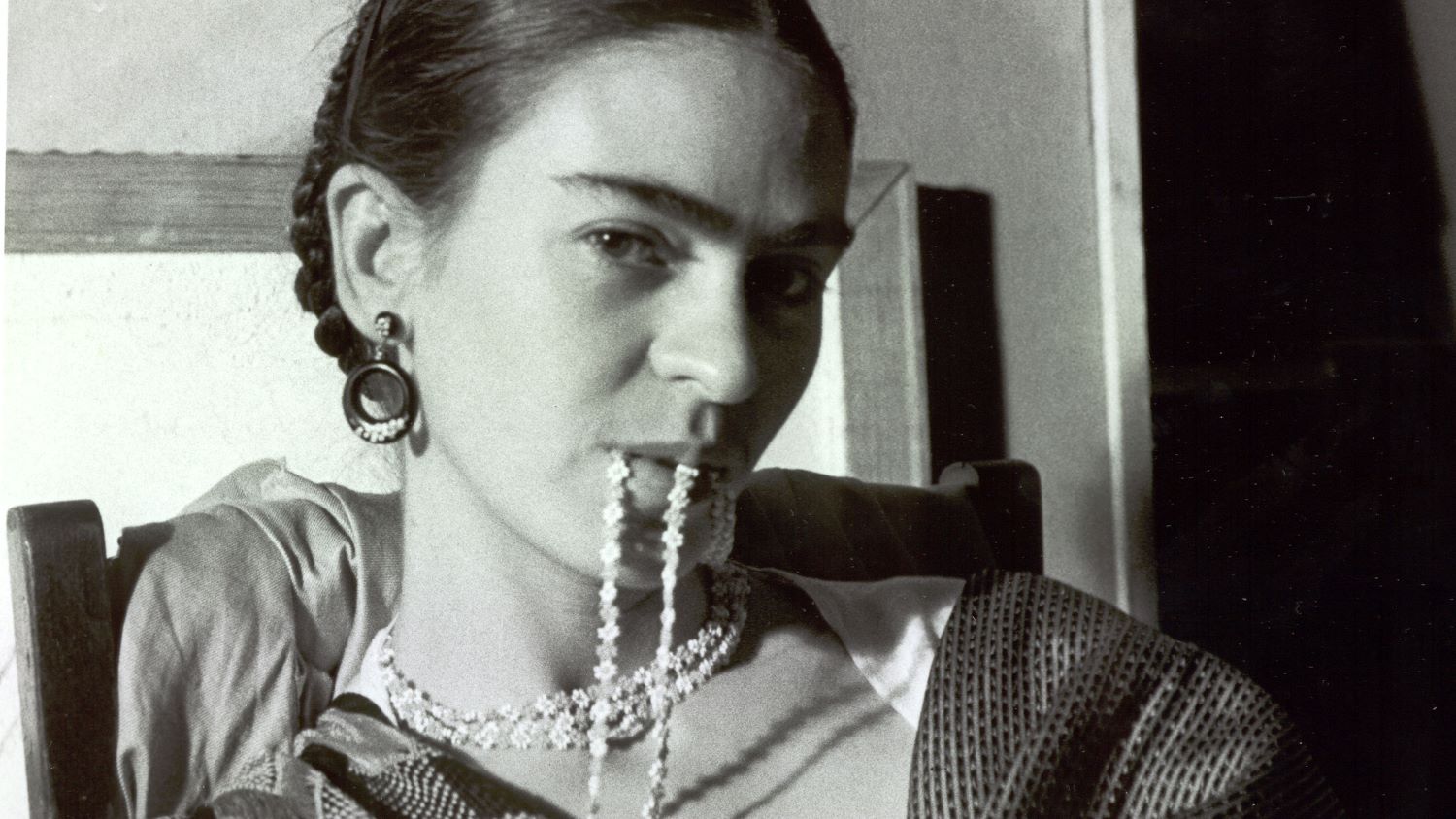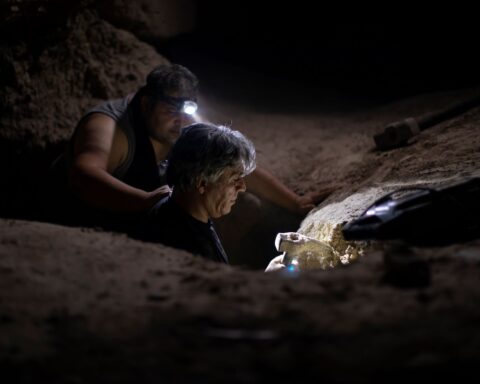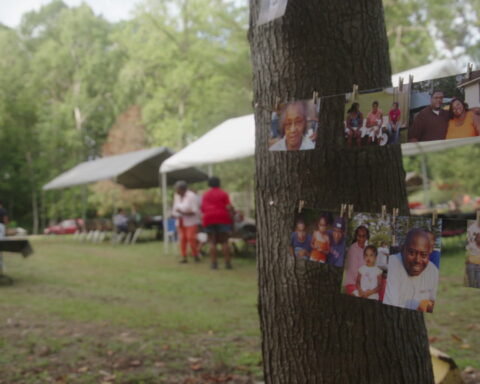Girls State
(USA, 96 min.)
Dir. Amanda McBaine and Jesse Moss
It was a cold, dark January day back in 2020 when I caught Jesse Moss and Amanda McBaine’s latest film at the time. That film, Boys State, documented the decades-old tradition in which the American Legion sponsors events in all 50 states, creating a temporary legislature in mock fashion. Students run campaigns and vie for office, resulting in a thousand high-schoolers testing the limits and travails of political life.
On screen, the Texas-based young men seemed idealistic and hopeful, only hinting at the darkness that was to come almost exactly a year later. 2020 was an election year, of course, and many of the political divides we saw on camera were prelude to what was to come later that year. At that festival there were hints of a flu-like event taking place over in China, discussed by people reading headlines between films.
A year later, instead of mock debates and elections, a violent crowd would storm the Capitol. Rather than a mock event, this was a mockery of what elections were meant to stand for, making the youthful exuberance captured in the film feel all the more of a different time as the real political mood darkened even further.
Re-watching Boys State, one held on to the improbable hope that ideas could be debated without animus, differences could be respected without derision, and notions of patriotism, empathy and even ambition could be fostered for the betterment of community, not simply for personal aggrandizement.
The film, itself an absolutely stunning exemplar of non-fiction restraint and precision, deservedly received the U.S. Documentary Competition Grand Jury Prize, and then went on to win further prizes at SXSW, as well as the Emmy for outstanding doc. As the year became more and more insular, with lockdowns making us all live in confinement, the thoughts of such a gathering seemed even more alien beyond the ideological elements. By the time the Capitol was stormed, I wondered how many of those mobsters using banners to smash windows and enter it had ever tried using words instead of violence to make their points.
Back at Sundance 2020, within minutes of the film’s announcement there was an obvious question: What about the stories of Girls State? In the four years since (fittingly, one election cycle), lots has changed. In California, for example, the event was made co-ed after a court case, and that surely would have made an interesting exploration while likely resulting in a bit of a rehash of what we’ve seen before. Wisely, McBaine and Moss have taken an even more clever tack, setting their sights on Missouri which, for the first time in 2022, held simultaneous girls and boys events at the same location.
The notion of “separate but equal” has long been a complicated factor in the American experience, but what this to bring together two events with different manifestations makes the discussion about the gender divide, one going back with this event to the 1940s, all the more stark. While Boys State listed those politicians, public figures and even former presidents who participated in the event, we see no such correlation in Girls State. The initial discussions with the young people surround issues such as needing a companion to travel anywhere on campus, or dress code stipulations requiring the covering of a back if it’s a top without one.
No such restrictions are placed on the boys, of course, yet while this has long been the case, the comparison is made all the more overt given the shared time on campus. This factory presents a unique way of showcasing how, despite its traditional support for the voices and ideas of young women, it’s clear from the regulations, guest speakers, and rigour of daily schedules that a wide gulf exists between the gendered events.
We witness the women gather just as another bombshell rocked the American political system, with Samuel Alito’s decision set to overturn the precedence of Roe vs. Wade leaking that spring. It’s the talk of just about everyone, yet while on the boys’ side, there’s clear policy work being accomplished (even if within the context of being a simulacra of actual governing). On the girls’ side, however, there’s seemingly more time spent on group sing-alongs and lectures about physical decorum.
That’s not to say that we don’t see some very impressive young people overcome their own anxieties and enter the political fray. Moss and McBaine once again find incredibly compelling characters to follow, a wide diversity of ideas and backgrounds with each figure bringing her unique voice to the event. Through a series of formal interviews and vérité moments, we once again are brought into the world of these participants in a way that’s revealing and riveting.
One is humbled by the general sense of optimism that each young woman brings to the fore, yet the dark edges of cynicism slowly creep in as reality comes to the fore. For many, this truly is the grand reveal: despite the lip service, the gender divide truly is contrary to the supposed empowering calls that are repeated throughout the event. The situation lays bare the lie that “separate but equal” connoted for decades within the jurisprudential discourse of the U.S. If there’s something truly pedagogical that occurs, it’s this direct notion that beyond the hype songs and sisterhood, it’s still a boy being sworn in as mock governor by the actual leader of the state, and it’s the males that are being lectured by actual policy makers about the current thinking about reproductive rights laws both local and national.
And so, Girls State is, by its design and its function, a sister film to the original, yet is in just about every way as vital and profound a look at this generation of young people as they navigate the new normal of political life. The choice of this location that pits the two events in such proximity is such a brilliant choice. It narratively serves as a perfect mode of counterpoint, while also providing the participants themselves opportunities to express their own views about the situation.
In other words, the film, like much of the best of non-fiction, allows the subjects themselves to have the dominant voice. McBaine and Moss’s camera is inquisitive yet never intrusive, the editing precise without ever being showy, the editorializing subtle while always following the guidance of those speaking. It’s bravura stuff, the result of an intrinsic ability to tell such a complex, political tale in a way that, frankly, each participant should feel that their views are communicated clearly and fairly.
Moss’ The Overnighters is one of my favourite docs of the century, a magnificent work of nuance and scope that was produced by McBaine. With the State films, the duo crafts some of the most brilliant ruminations upon a new generation of political thinkers. It is easy to see how this could be a regular series, something like the 7-Up films but from the perspective of eager young people. For now, we have this latest chapter, one that’s as formally precise as it is narratively rewarding. It’s early in 2024, a year that’s sure to have its own share of upheavals (may they not rise to what 2020 wrought!), but here, in these early weeks of yet another election year, Girls State has already established itself as one of the must-see films of this season.




